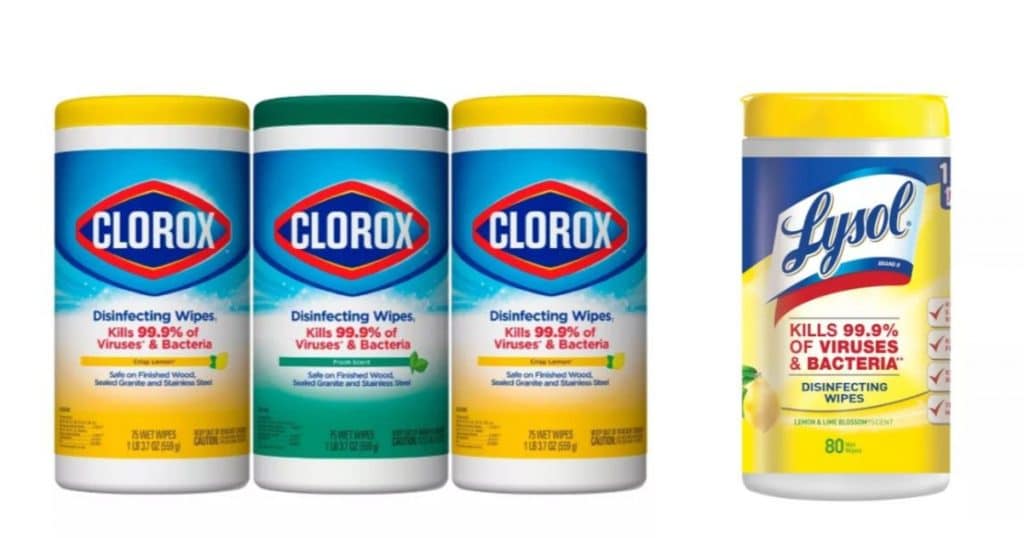
The virus is thought to spread mainly from person-to-person, according to the Center for Disease Control. Recent studies indicate that people who are infected but do not have symptoms likely also play a role in the spread of COVID-19. The best way to prevent illness is to avoid being exposed to this virus.
The majority of the world is on quarantine, but there are still precautions that you can take in your own home. Some recent studies have suggested that COVID-19 may be spread by people who are not showing symptoms; this may include your own family members. Try and maintain social distance, even amongst family members, of at least six feet when possible.
It may be possible that a person can get COVID-19 by touching a surface or object that has the virus on it and then touching their own mouth, nose, or possibly their eyes. Many of us are ordering necessities online and having them delivered to our door. This may minimize your contact with fellow humans, but does not eliminate your risk. Make sure to wipe or spray boxes or envelopes with antibacterial product prior to bringing into your house. It is also a good idea to wipe off the outside of cans, bottles, etc. with an antibacterial wipe. If soap and water are not readily available, use a hand sanitizer that contains at least 60% alcohol. Cover all surfaces of your hands and rub them together until they feel dry. Make sure that your are routinely cleaning shared surfaces, particularly door knobs, appliance handles and knobs, toilet handle (flusher), Vacuum, broom, and mop handles, handrails, sink handles, and even the door handles on your car. Consider wearing gloves and make sure that you have good ventilation during use of sanitizing products. Consider leaving your shoes by the front door and spraying them down with lysol.
Try to minimize your trips to the grocery store to once a week or every other week. Consider stocking up on frozen fruits and vegetables as well as meat, fish, and poultry. Make a checklist before you go of anything that you might need. Toiletries, cleaning supplies, trash bags, coffee, medications (including over the counter), bottled water, canned goods, feminine hygiene products, etc. Every time you go to the store you increase your risk of person-to-person contact as well as touching a grocery cart, basket, or product that has been tainted. After you pay with your credit card, wipe the card off with an antibacterial wipe (they usually have them at the store for public use), then wipe your hands off as well. If you have to handle money, make sure that you wash your hands with soap and water A.S.A.P. If you have to pump your own gas, wear gloves, or use a paper towel to hold handle and to press any buttons on the keypad. If you think you still might have had contact with the machine or handle, go wash your hands with soap and water. After you dry your hands with paper towel, use it to open door handle and dispose in trash afterward. Use your body to push open doors whenever possible.
When you arrive home with your grocery bags, use the same guidelines as receiving packages in the mail. Fresh fruit and vegetables should be washed with soap and water at the same time your are washing your hands.
Some great advice from the CDC:
Older people are at higher risk for severe illness from COVID-19 which may result in increased stress during a crisis.
Fear and anxiety about the COVID-19 pandemic can be overwhelming and cause strong emotions.
Things you can do to support yourself:
- Take breaks from watching, reading, or listening to news stories and social media. Hearing about the pandemic repeatedly can be upsetting.
- Take care of your body. Take deep breaths, stretch, or meditate. Try to eat healthy, well-balanced meals, exercise regularly, get plenty of sleep, and avoid alcohol and drugs.
- Make time to unwind. Try to do some other activities you enjoy.
- Connect with others. Talk with people you trust about your concerns and how you are feeling.
- Call your healthcare provider if stress gets in the way of your daily activities for several days in a row.
- If you, or someone you care about, are feeling overwhelmed with emotions like sadness, depression, or anxiety, or feel like you want to harm yourself or others call
- 911
- Substance Abuse and Mental Health Services Administration’s (SAMHSA’s) Disaster Distress Helpline: 1-800-985-5990 or text TalkWithUs to 66746. (TTY 1-800-846-8517)
